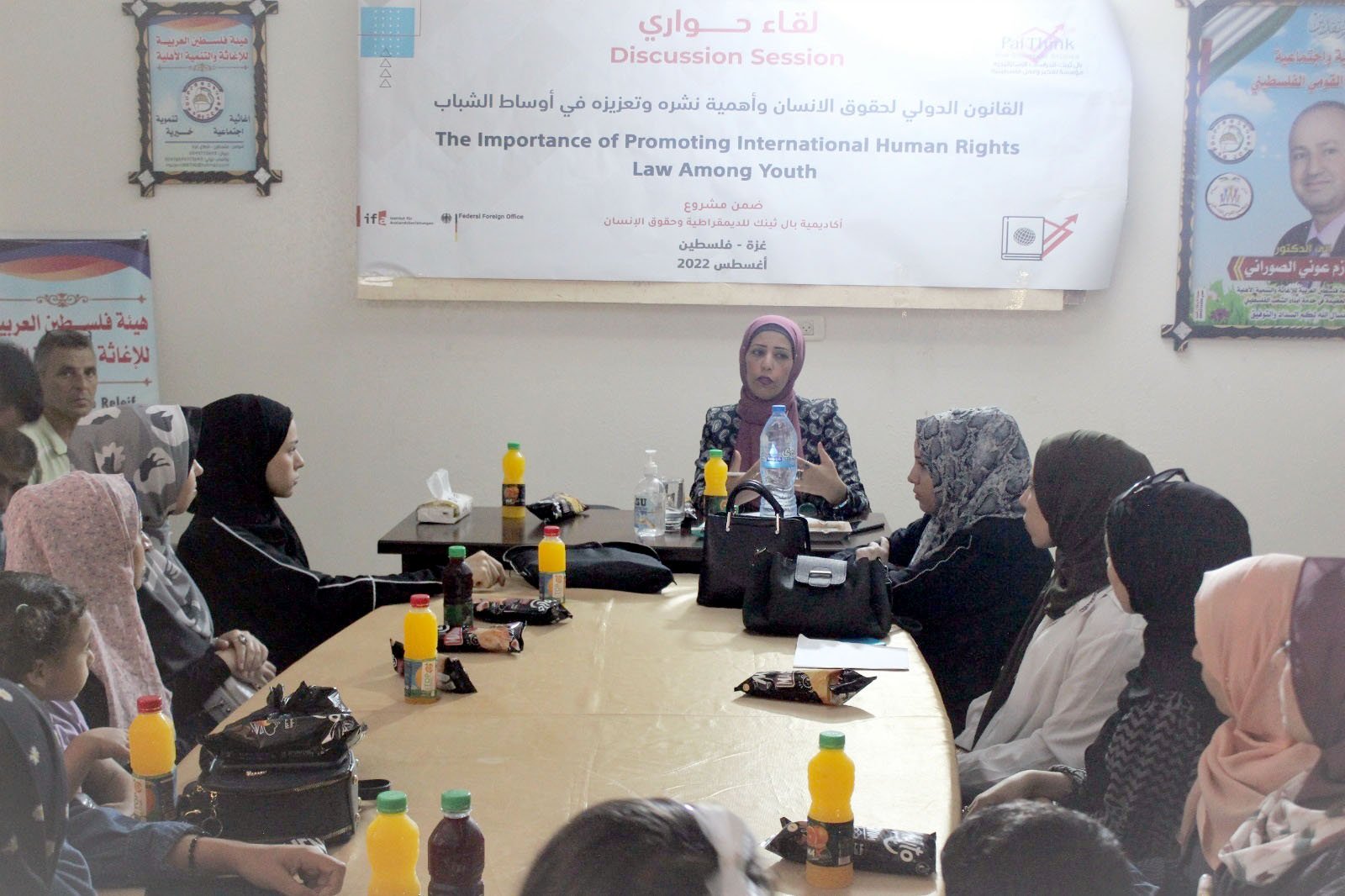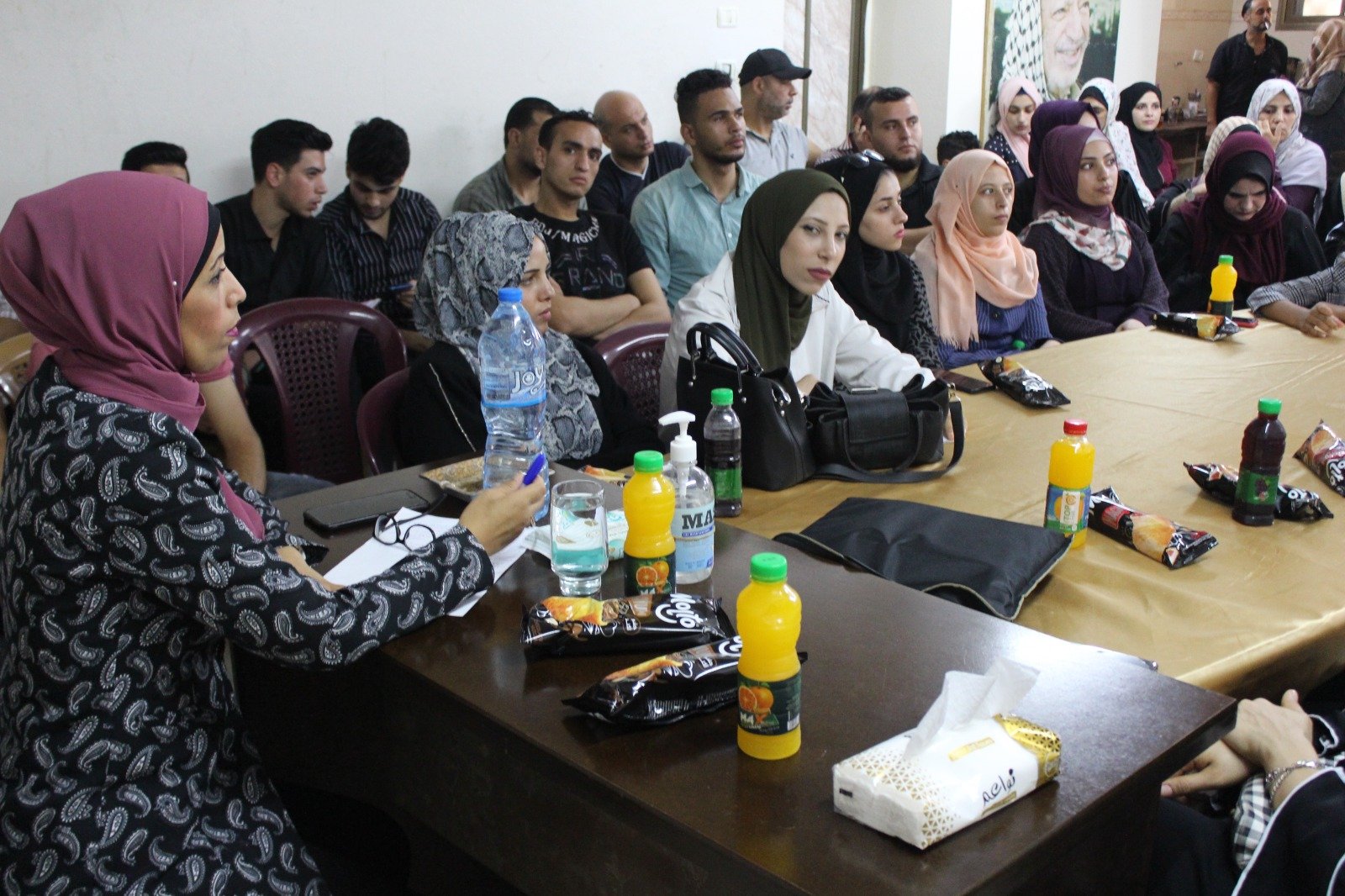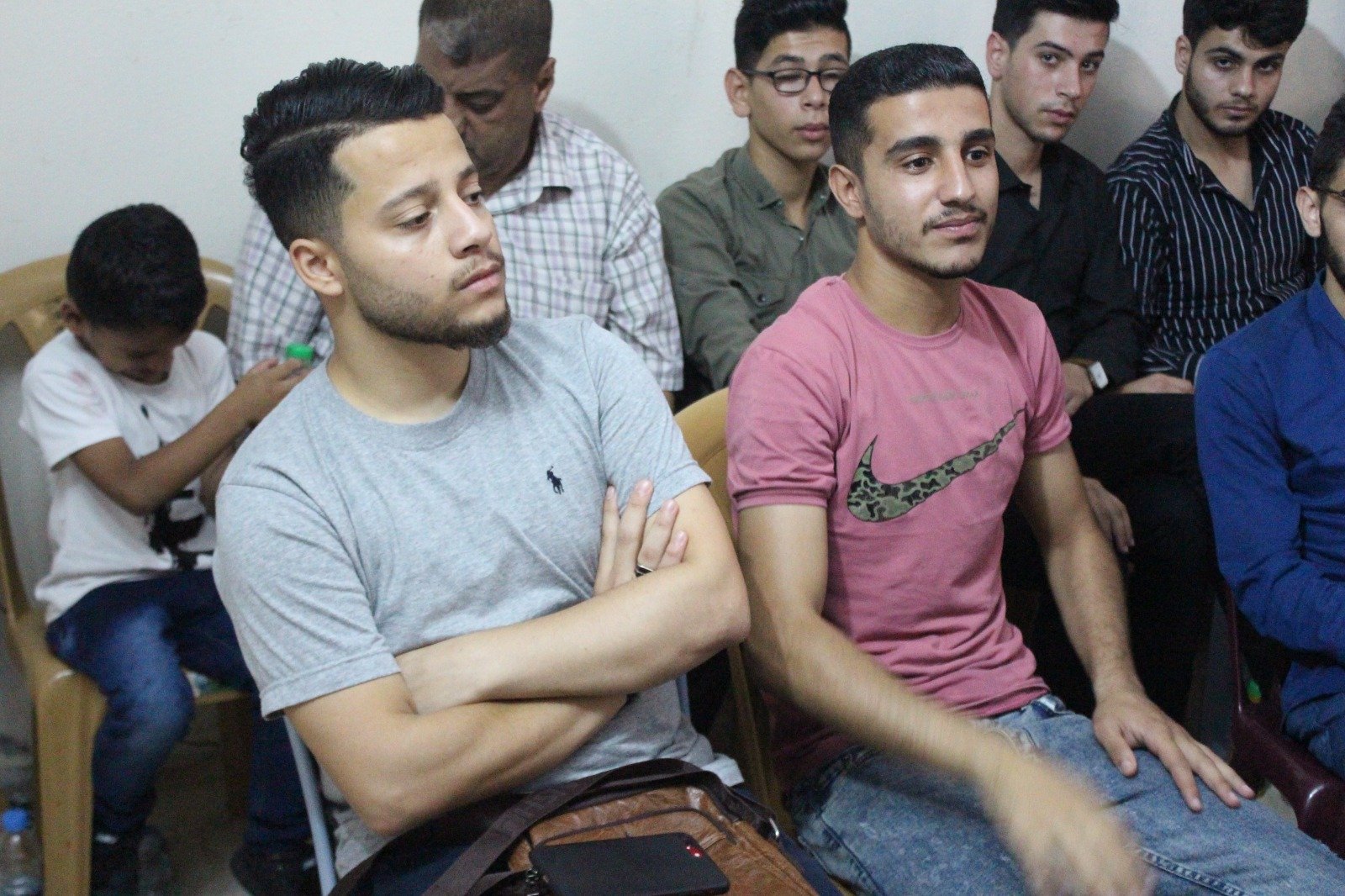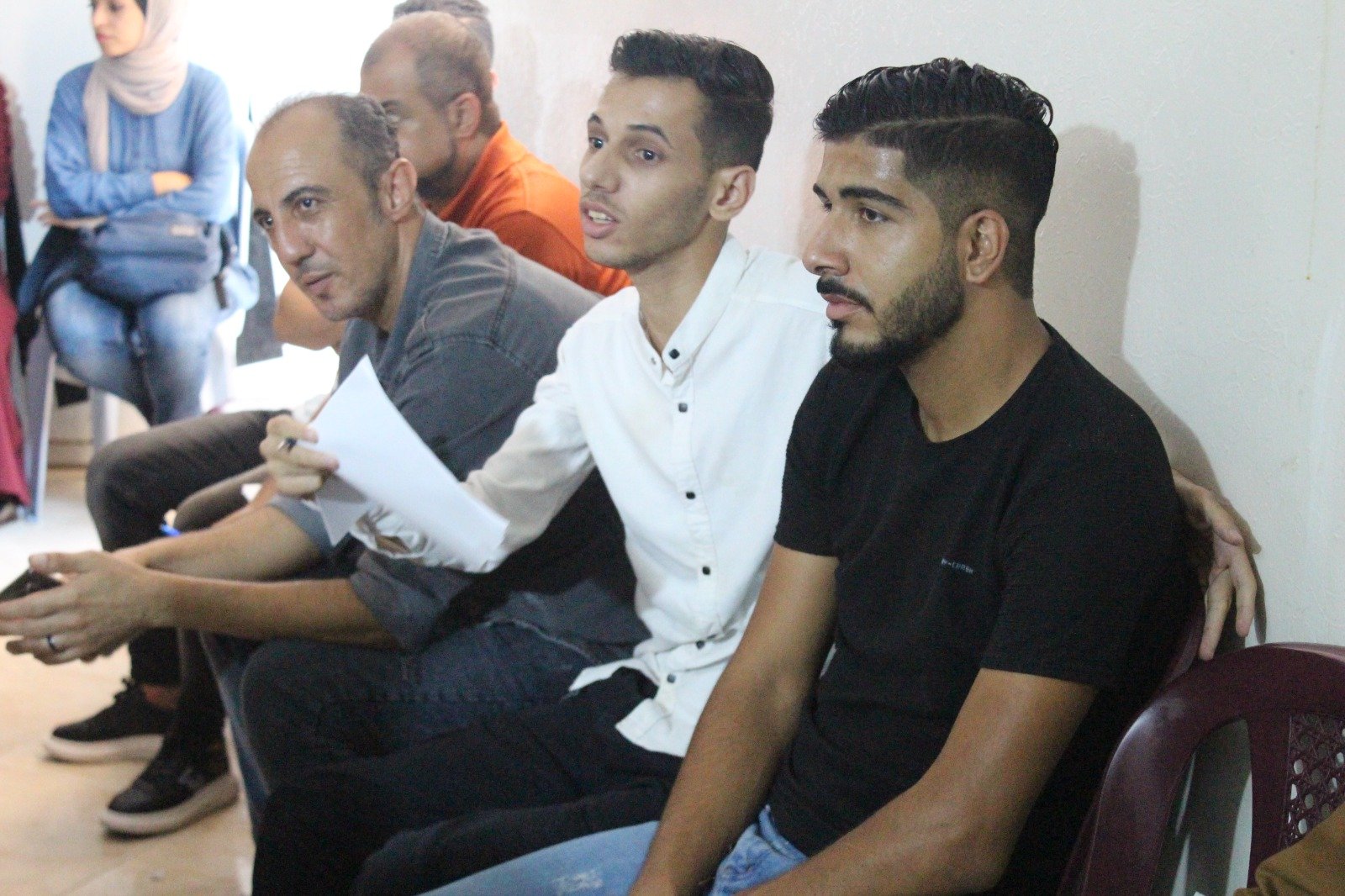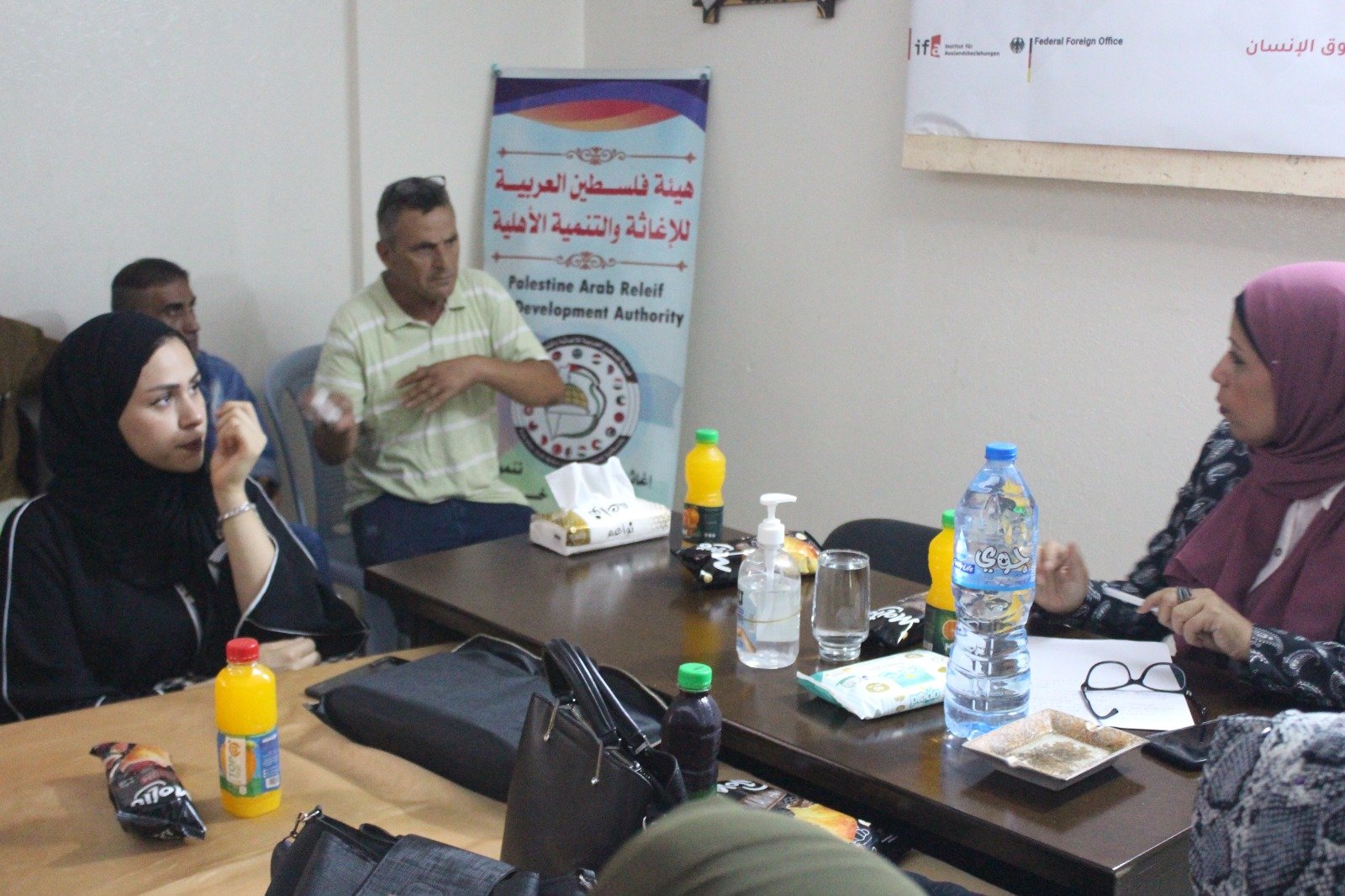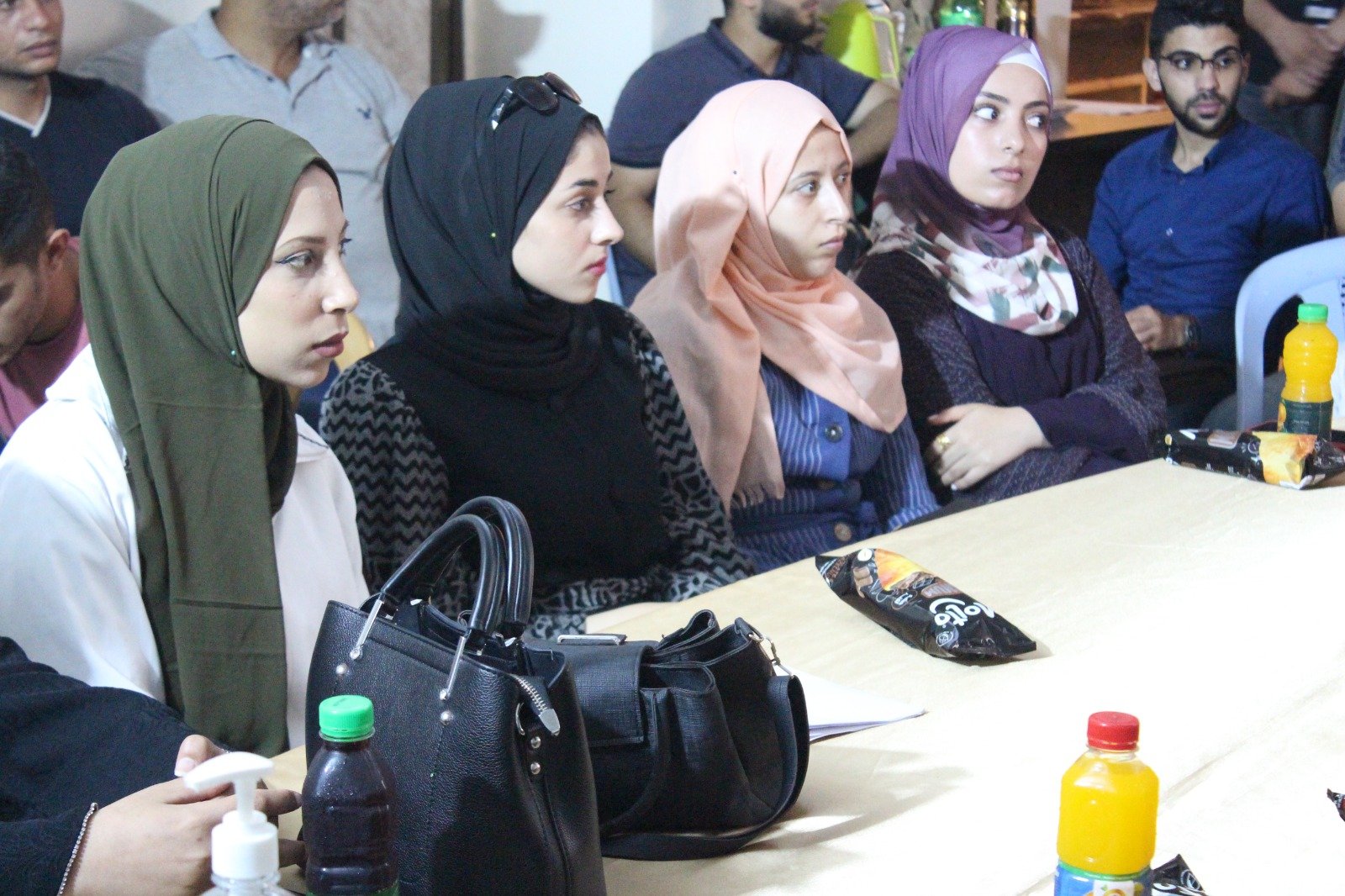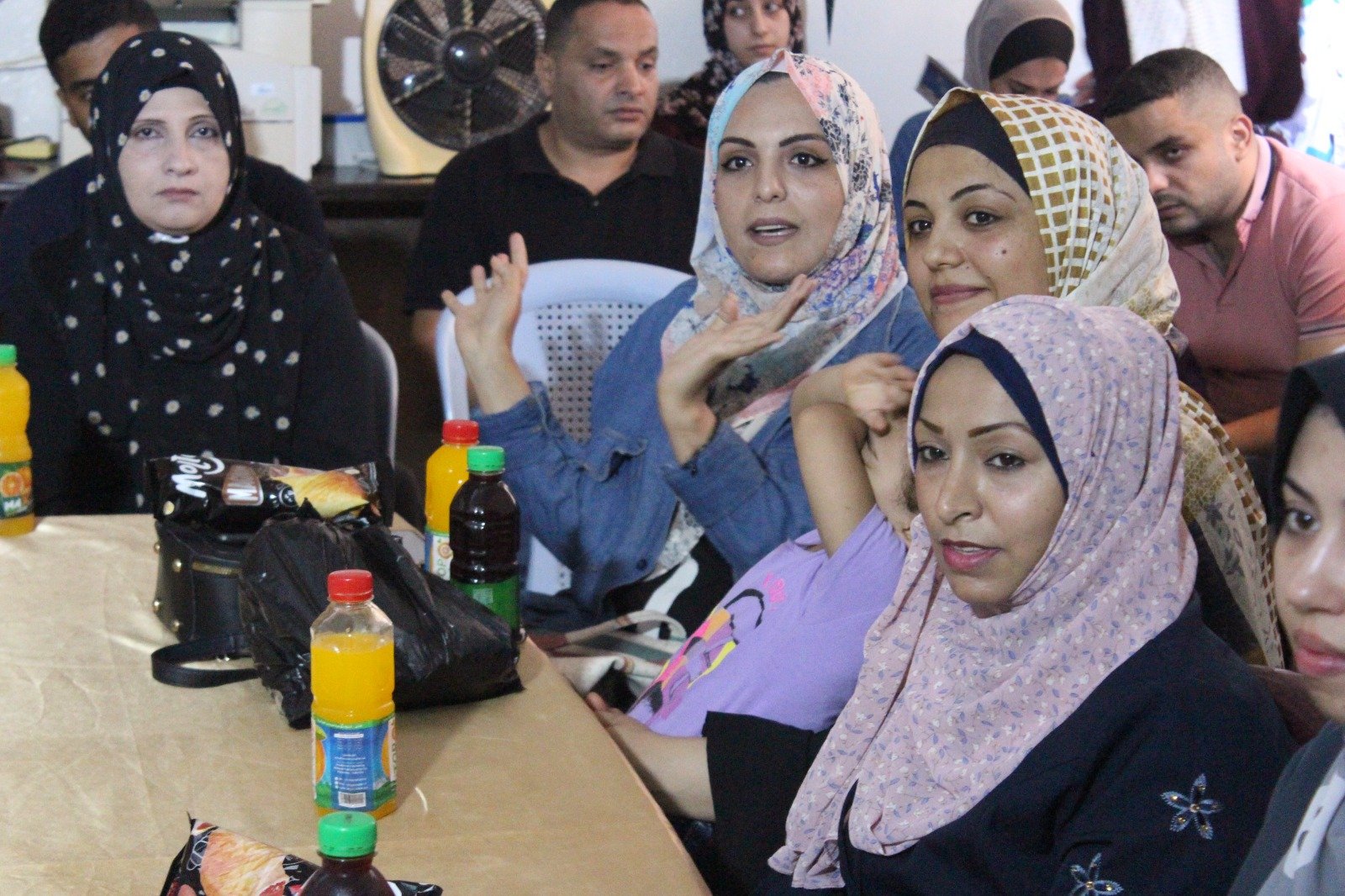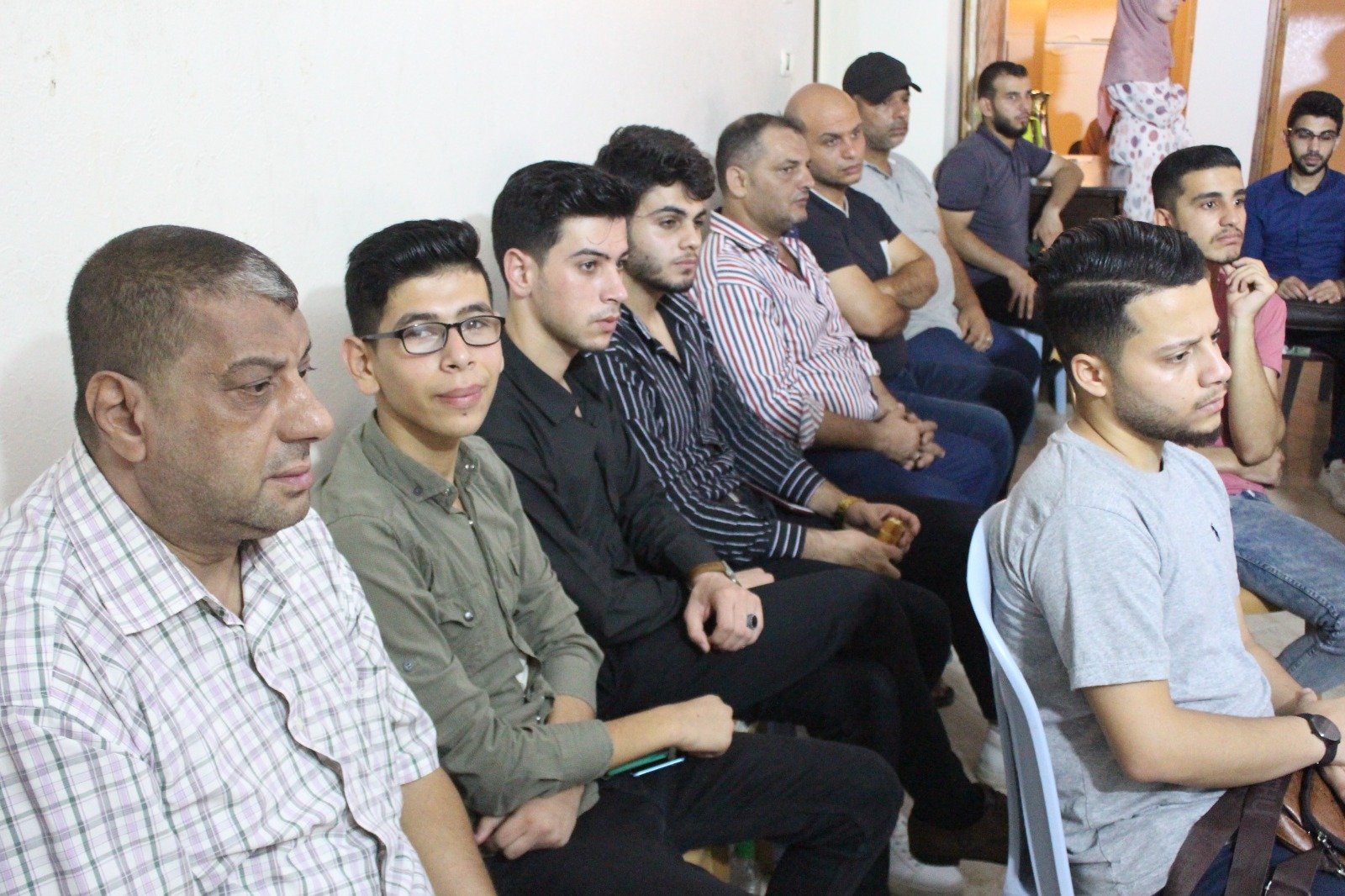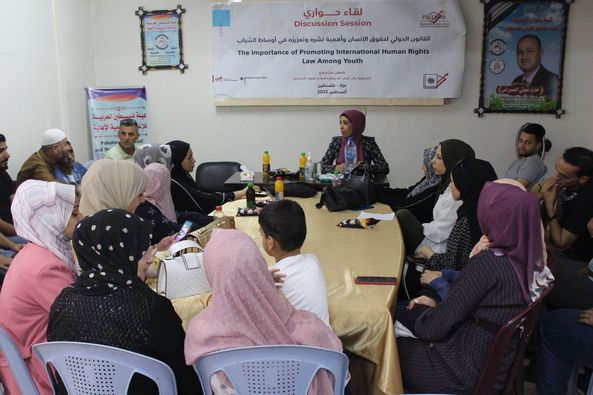
Pal-Think for Strategic Studies has held a session entitled “International Human Rights Law and Promoting it Among Youth” that was attended by a number of young people from both sexes.
The session was conducted in cooperation with the Palestine Arab Authority for Relief and Civil Development, as part of the Pal-Think Academy for Democracy and Human Rights project, implemented by Pal-Think in partnership with the German Institute for Foreign Cultural Relations (ifa).
Samia Al-Ghussein, professor of public international law at Al-Azhar University, moderated the session, which she opened by welcoming the attendees and stressing the importance of spreading the culture of human rights to further respect for human dignity and social and moral responsibility.
“Human rights promote mutual respect and collective assistance. It calls people to adapt to others’ needs to balance between their interests and guarantee joint action that aims at achieving the common good without resorting to organized or unorganized violence, which confiscates people’s liberties,” she said.
Al-Ghussein answered the question “who protects human rights?” by saying that the United Nations Commission on Human Rights was established in 1946 to consolidate the international legal fabric that protects our fundamental rights and freedoms. She added that the powers of the Commission, which comprises 53 member states, have been expanded over time to address all human rights problems and set standards to regulate states’ behavior.
“The Committee is an international forum through which countries, non-governmental groups, and human rights defenders from around the world can express their concerns,” she said.
Al-Ghussein explained that human rights are legal guarantees that protect individuals and groups from any infringement on their basic freedoms, entitlements, and human dignity, that human rights are inherent for all people and that their basis is respect for the dignity and value of each person.
Al-Ghussein indicated that international human rights law establishes obligations that states are bound to respect, adding that the development of a comprehensive set of human rights laws is one of the most important achievements of the United Nations.
The attendees stressed the need to adapt the Palestinian legal system in line with international treaties and conventions to which Palestine has recently acceded, especially those legal texts related to women’s rights, given that women in Palestinian society suffer various forms of violence.
The attendees spoke about human rights in the Palestinian territories, which are being violated on an almost daily basis, in an environment that restricts freedom of opinion and expression, whether on social media or on the ground, and this is one of the outcomes of the Palestinian political division.
At the end of the session, the attendees stressed the need to spread and strengthen the culture of human rights at all levels.



 Home
Home Literature
Literature Studies
Studies Reports
Reports Book
Book International Conventions
International Conventions Links
Links Academy News
Academy News Opportunities
Opportunities Networking
Networking Your opinion
Your opinion